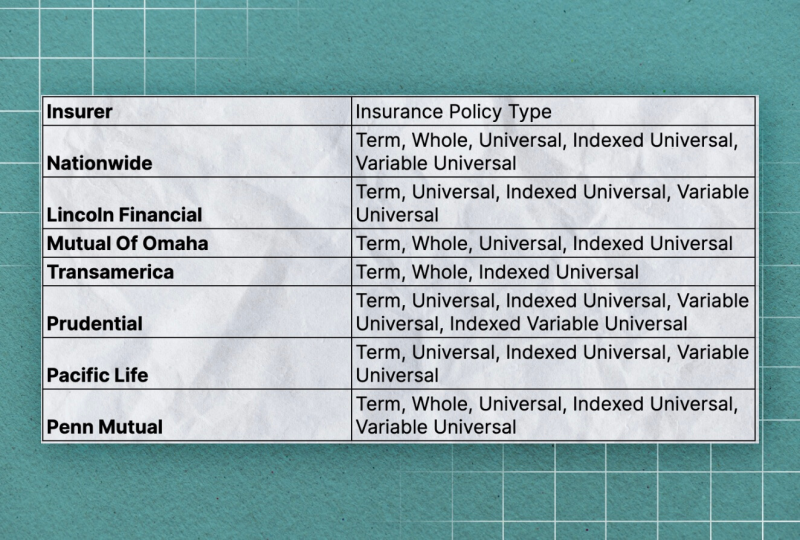All Categories
Featured
Table of Contents
Do they contrast the IUL to something like the Vanguard Total Amount Supply Market Fund Admiral Shares with no load, an expenditure ratio (ER) of 5 basis points, a turnover ratio of 4.3%, and an exceptional tax-efficient document of circulations? No, they compare it to some dreadful proactively taken care of fund with an 8% lots, a 2% ER, an 80% turn over proportion, and an awful record of short-term capital gain circulations.
Mutual funds frequently make yearly taxable circulations to fund proprietors, also when the value of their fund has actually gone down in worth. Mutual funds not only require revenue reporting (and the resulting yearly taxation) when the mutual fund is increasing in value, however can additionally impose income taxes in a year when the fund has actually dropped in value.
That's not how common funds work. You can tax-manage the fund, harvesting losses and gains in order to minimize taxed circulations to the capitalists, however that isn't in some way going to transform the reported return of the fund. Just Bernie Madoff types can do that. IULs avoid myriad tax obligation catches. The ownership of common funds may call for the shared fund proprietor to pay estimated taxes.

IULs are easy to place to ensure that, at the proprietor's death, the recipient is exempt to either revenue or inheritance tax. The very same tax reduction methods do not work almost as well with common funds. There are numerous, usually expensive, tax traps connected with the moment trading of common fund shares, traps that do not use to indexed life Insurance coverage.
Chances aren't really high that you're mosting likely to be subject to the AMT as a result of your shared fund circulations if you aren't without them. The remainder of this one is half-truths at ideal. While it is true that there is no revenue tax due to your heirs when they inherit the profits of your IUL plan, it is likewise true that there is no earnings tax due to your heirs when they inherit a shared fund in a taxable account from you.
Indexed Universal Life Insurance Calculator
The federal estate tax exemption limit is over $10 Million for a couple, and growing yearly with rising cost of living. It's a non-issue for the large bulk of medical professionals, much less the rest of America. There are far better ways to stay clear of inheritance tax problems than purchasing investments with reduced returns. Shared funds might trigger revenue tax of Social Safety and security benefits.

The growth within the IUL is tax-deferred and might be taken as free of tax income by means of financings. The plan proprietor (vs. the shared fund manager) is in control of his/her reportable earnings, thus allowing them to decrease and even remove the tax of their Social Safety benefits. This set is terrific.
Here's one more minimal issue. It's true if you acquire a shared fund for claim $10 per share right before the circulation day, and it disperses a $0.50 circulation, you are then going to owe taxes (probably 7-10 cents per share) despite the reality that you have not yet had any gains.
In the end, it's really regarding the after-tax return, not exactly how much you pay in tax obligations. You're also possibly going to have even more cash after paying those taxes. The record-keeping needs for owning shared funds are significantly more intricate.
With an IUL, one's documents are maintained by the insurance policy business, duplicates of annual declarations are mailed to the owner, and distributions (if any type of) are amounted to and reported at year end. This one is likewise type of silly. Of program you must keep your tax obligation records in situation of an audit.
Ul Mutual Insurance
Rarely a reason to buy life insurance coverage. Mutual funds are commonly component of a decedent's probated estate.
Additionally, they go through the delays and costs of probate. The proceeds of the IUL plan, on the various other hand, is always a non-probate circulation that passes outside of probate straight to one's called beneficiaries, and is therefore not subject to one's posthumous financial institutions, undesirable public disclosure, or comparable hold-ups and costs.
We covered this under # 7, yet just to evaluate, if you have a taxable mutual fund account, you have to put it in a revocable depend on (or perhaps less complicated, utilize the Transfer on Death classification) in order to stay clear of probate. Medicaid incompetency and life time earnings. An IUL can supply their proprietors with a stream of revenue for their entire lifetime, despite the length of time they live.

This is advantageous when arranging one's affairs, and transforming assets to income before a nursing home arrest. Mutual funds can not be transformed in a similar manner, and are often taken into consideration countable Medicaid properties. This is another foolish one supporting that bad people (you know, the ones who require Medicaid, a federal government program for the bad, to spend for their nursing home) must use IUL rather than shared funds.
Equity Indexed Life Policy
And life insurance coverage looks awful when compared relatively versus a retirement account. Second, individuals that have money to purchase IUL above and past their retired life accounts are going to have to be horrible at managing money in order to ever before get approved for Medicaid to pay for their assisted living facility prices.
Persistent and incurable health problem motorcyclist. All policies will permit a proprietor's easy access to cash money from their plan, frequently waiving any type of abandonment penalties when such individuals experience a severe ailment, require at-home treatment, or come to be restricted to an assisted living facility. Shared funds do not provide a comparable waiver when contingent deferred sales fees still use to a mutual fund account whose proprietor requires to market some shares to fund the prices of such a remain.
Iul 7702
You get to pay more for that benefit (biker) with an insurance coverage policy. Indexed universal life insurance provides death benefits to the beneficiaries of the IUL owners, and neither the owner neither the beneficiary can ever shed cash due to a down market.
I certainly do not require one after I reach monetary freedom. Do I want one? On average, a buyer of life insurance policy pays for the real cost of the life insurance policy advantage, plus the costs of the policy, plus the revenues of the insurance company.
Term Life Vs Universal
I'm not totally certain why Mr. Morais included the entire "you can't lose cash" once more below as it was covered fairly well in # 1. He just intended to duplicate the most effective marketing factor for these things I suppose. Once again, you don't lose nominal bucks, yet you can lose real bucks, as well as face significant possibility price because of low returns.

An indexed global life insurance coverage policy owner may trade their policy for an entirely various plan without triggering earnings taxes. A common fund owner can stagnate funds from one shared fund firm to an additional without marketing his shares at the previous (hence setting off a taxable occasion), and repurchasing brand-new shares at the last, typically based on sales costs at both.
While it is true that you can exchange one insurance coverage for one more, the reason that people do this is that the first one is such a horrible plan that also after buying a new one and going with the early, adverse return years, you'll still appear ahead. If they were offered the ideal plan the very first time, they should not have any kind of need to ever exchange it and go through the very early, unfavorable return years once more.
Latest Posts
Universal Life Insurance Cash Value Calculator
Iul Vs 401k Calculator
Principal Group Universal Life